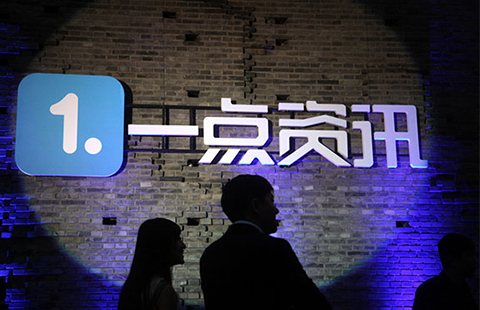Shanghai Symphony Telecommunications - a giant of cloud end integration
(chinadaily.com.cn) Updated: 2015-11-09 09:18From hotly discussed concept to gradual emergence into real practice, cloud computing is today considered the basic platform of "Internet plus". Some industry insiders even point out that cloud service will be the next trillion grade market. Traditional industries like finance are all actively embracing cloud computing, making it indisputably a new trend.
The trend is reflected in changes in users' attention and needs. Cloud computing's impact on the Communications and Technology (ICT) market is not merely at the technology and product level; rather, it has generated the emergence of a new business model. Traditional vendors are gradually evolving into service providers--instead of selling equipment, hardware and software as in the past, they are moving toward selling services and resources. Cloud computing and service delivery have become irresistible trends in the informatization industry.
In this environment, and unwilling to trail behind others, traditional IT manufacturers, IDC service providers, and Internet giants have already entered the field. Transition from traditional CT to IT has also picked up speed. On July 30, Huawei, a large Chinese telecommunications firm, formally announced public cloud service, aiming to become China's biggest supplier of public cloud services and solutions.
In the carrier sector, telecom value-added service providers are expected to become giants in the new cloud field. Shanghai Symphony Telecommunications (SST), for example, hopes to do so by relying on its unique cross-cutting advantage.
Putting IT and network into a package as needs-based service
In the past few years, SST progressively developed from WAN, its traditional business, to mobile management and unified telecommunication based on a cloud computing platform. It now provides users with integrated one-stop ICT service through closer cooperation with industry partners.
As of July 2015, SST's WAN business, its traditional pillar, was available in 158 cities across China in 32 provinces, municipalities directly under the central government, and Hong Kong. Today, cloud computing, unified telecommunication, and mobile management have become SST's three new main business forces.
SST is now dedicated to integrating traditional business and new business into one package, by adopting the form of IT infrastructure service, and supplying it to users based on needs, so that users are able to construct and deploy IT and network resources in more flexible ways to achieve their ends of smooth integration with the cloud.
It is worth mentioning that last year SST formally began to offer users cloud data center services from basic IaaS (Infrastructure-as-a-Service) to SaaS (Software-as-a-Service). This business has grown rapidly. In the second half of this year, SST will make renewed efforts to upgrade and optimize services of the cloud data center, in order to satisfy user needs more comprehensively.
Integrate industry resources, maximize position in cloud end
For SST, long years of experience in servicing the world's top 500 corporations enable it to deploy an extremely professional service team and penetrating industry insight, so that it is capable of covering the needs of different groups from large users to SME enterprises. This is SST's greatest strength for dominating in the cloud end area.
Nevertheless, unlike general mass-oriented markets, corporate-level markets have complicated and diversified needs. Gaining a foothold in the market requires resource integration, including self-owned resources and partners' resources. To corporate users in traditional industries, the resource integration ability of service providers is more important than cost, service, or brand.
Relying on its in-depth understanding of the industry, SST is joining with local partners to continually launch innovative products and services that consider user needs, especially industry users' special needs, for informatization construction and usable applications.
SST has unfolded in-depth cooperation with solution providers in retail and manufacturing industries by integrating industry applications onto the SST cloud platform and network resources. It provides users with custom-made one-stop services based on needs. In the future, such cooperation will continually develop in depth. SST has a telecom carrier background, plus strong resource integration ability, potentially enabling it to completely shatter the traditional IT service models by cooperating with ISV(independent software vendors), SI (system integrators), small and medium sized providers and software outsourcing, which have large numbers of resources in traditional industries.
In the process of active evolution toward "cloud trend" and "service trend", SST has joined with partners to march toward cloud end together with users. SST is building a brand-new eco-system to bring customer service experience into a new realm.
- Establishing a new type of think tank platform, pooling resources to develop 'One Belt One Road' community: Zhao Baige
- China FX reserves rise in October to $3.5255t
- Trade between China and Russia expands in digital age
- Investors banking on key data
- Guilin at forefront in battle against malaria
- AVIC's program will help the next generation of engineers
- Lock-up shares worth 28.8b yuan to become tradable
- Resumption of IPOs will keep stock market sound















